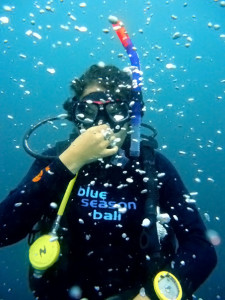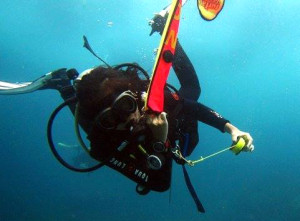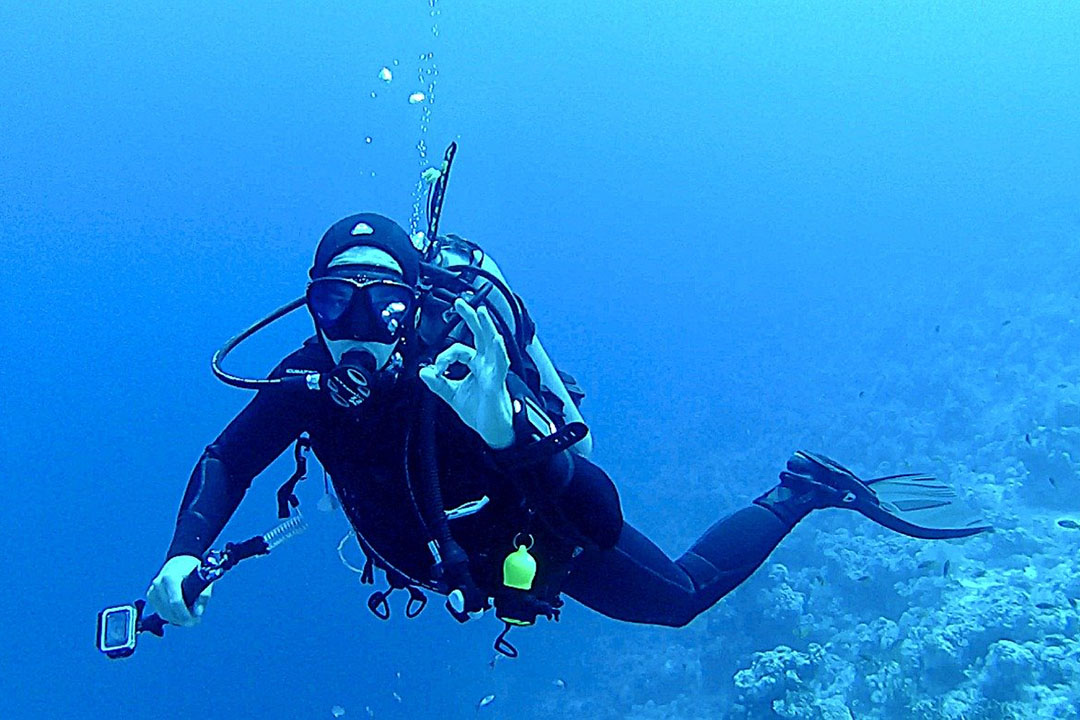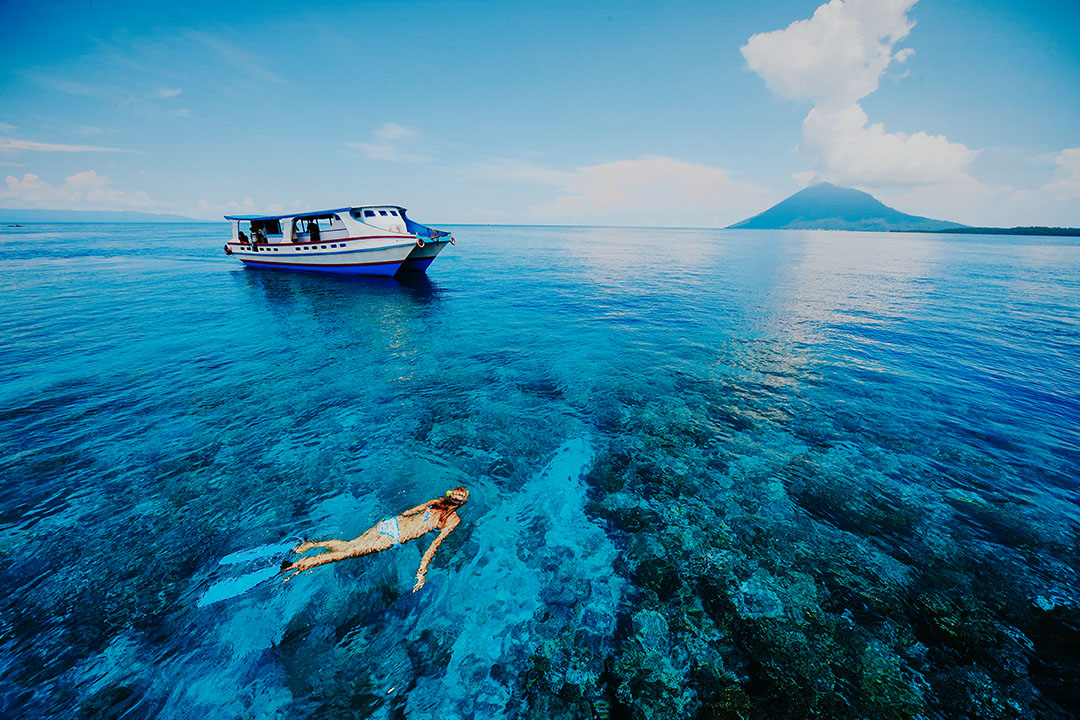- “Don’t dive when you’re sick” We all remember this from our Open Water Course, but I can name more than one occasion on which I leapt into the water, cold in hand. As a general rule, if you can’t equalise your ears on the surface, you won’t be able to equalise them underwater, so it’s perhaps better to absorb some sun rays or stick to snorkelling for the day. To test this: pinch your nose and blow GENTLY against it, you should feel a small “pop”.
- Try to avoid using any kind of decongestant, as they may wear off underwater, and will prevent you from ascending once your ears have blocked up again. Reverse block is no joke and could lead to a burst ear drum, so be careful.
- Here in Bali, we we commonly engage in drift diving, so it is important to test equalise on the surface to prevent delays in descent and potential separations. Before you descend, equalise your ears on the surface. This gets your ears ready for the decent and really does make a difference.
- To equalise your ears, you only need very gentle pressure, try to avoid blowing too hard as this will put strain on your ear drum. If you are not able to equalise with a gentle blow, or with moving your jaw from side to side, ascend a little and try again. Some people find these other methods helpful too: rubbing just behind the earlobe, a “yawn” like motion, swallowing.
- If you are a new diver, try to descend using a line or sloping bottom, this will help you to descend slowly and avoid that “hard pressure” you feel when you’ve descended too far and haven’t been able to equalise your ears. Most of our shore based dives here in Bali have nice gentle slopes, which are great for new divers. If you struggle with equalisation, research your first couple of dive sites to make sure they’ll be easy on your ears.
- If you are not able to use a line or sloping bottom, make sure you are correctly weighted and try to add one tiny “burst” of air to your bcd every 1m-2m this will help you to “float” down and will give you plenty of time to equalise your ears.
- Don’t Panic! If you are struggling to equalise your ears, don’t feel like there is some group pressure to get to the bottom fastest, it is perfectly okay to signal that you need to go slowly, or, to swim above your group (should conditions allow) until you are able to join them at their depth. Stress will make the whole process harder. So try to relax and remember that being able to equalise quickly is a matter of physiology and not inherent skill or ability.
Happy diving 🙂 We hope to see you in Bali with us soon.




